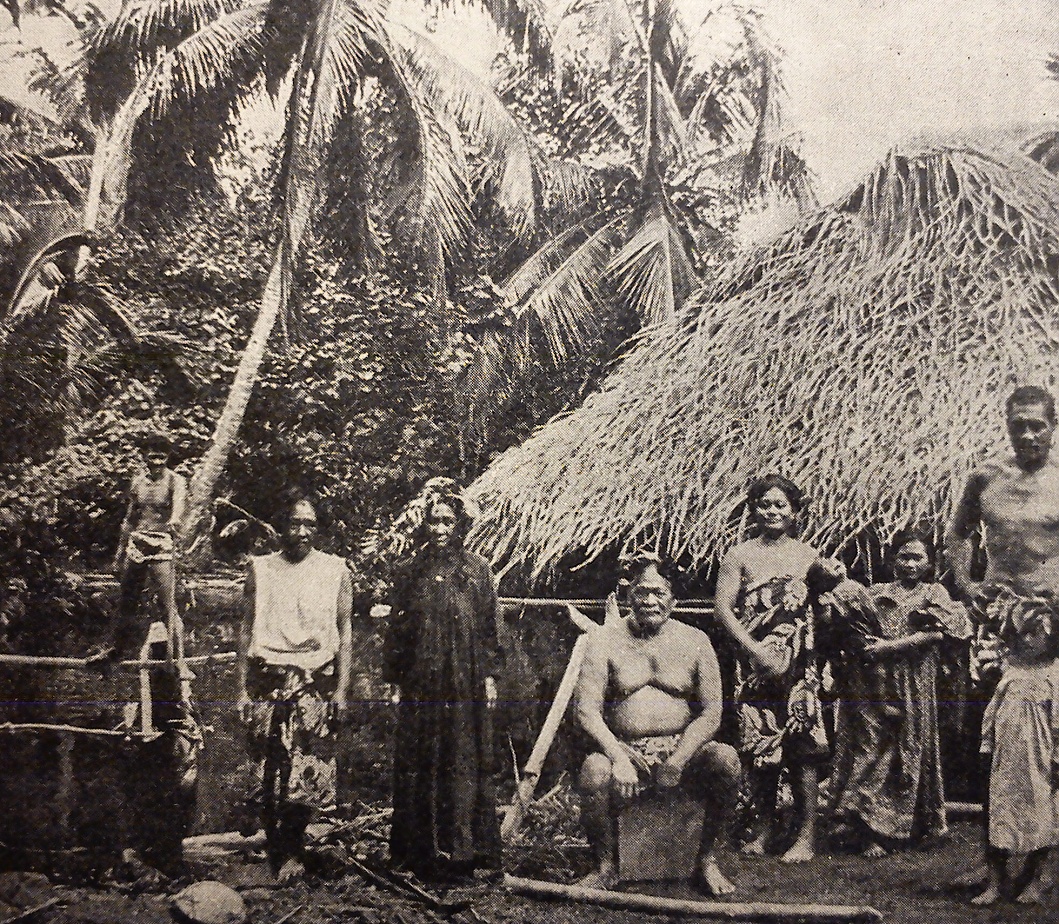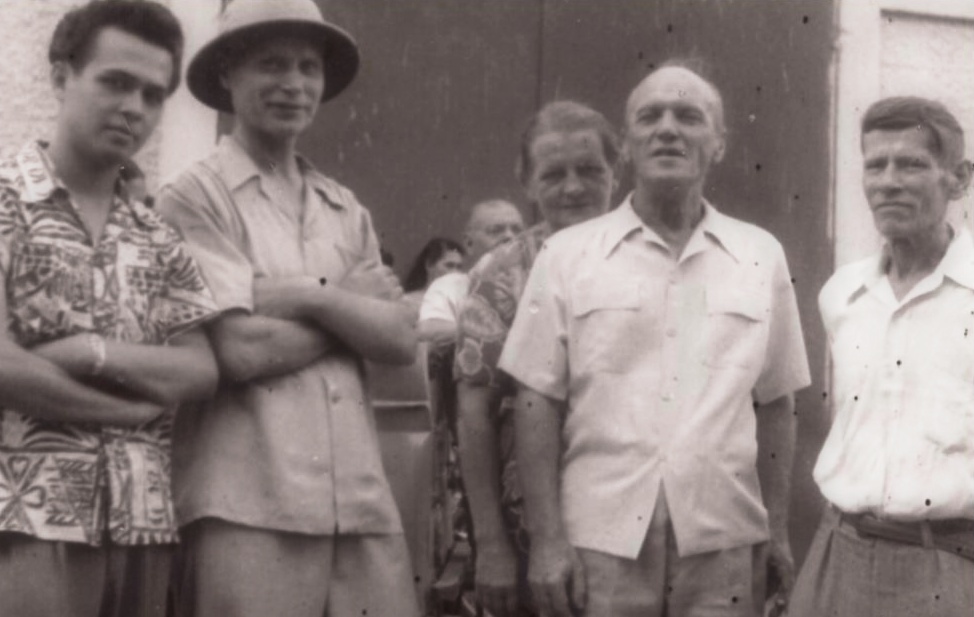Josef Papírník
It may seem incredible, but in Tahiti, in distant French Polynesia, several dozen Czechs have lived since the 1930s. They are concentrated mainly in the capital city of Papeete, where Czech hoteliers, restaurateurs, builders, carpenters, and music teachers were to be found. Most compatriots there, however, owned plantations and tried to farm under very difficult conditions, mainly in the production of cotton. Some succeeded, but many returned to Czechoslovakia or moved elsewhere in the Pacific region. That would also be the case of our family. I have lived in Tahiti with my wife Anna since 1925. I held various administrative positions, and I did some business, but in the end we moved to Wellington in New Zealand after the war.
Most compatriots there, however, owned plantations and tried to farm under very difficult conditions, mainly in the production of cotton.
Life in Tahiti was completely different from what I had encountered before or since. I went fishing almost every day and there was enough fish for us, as well as the cats and the pig we had. The pig also enjoyed breadfruit, bananas and ground crabs. The big problem was the rats. When a rat climbed the coconut tree, the harvest was gone. The rats could live there for generations because the coconut kernel can be eaten at all stages of its growth. Therefore, most palms were covered with aluminum. Buzzards brought by European missionaries had killed almost all the native birds.

Cultivation of vanilla was a good source of income. People used to steal it a lot, so the farmers labeled their plants and watched them carefully. The green fruit looked a bit like beans. The “cut” was followed by sale on the market, which was always supervised by a policeman. The merchants were the Chinese who dominated all the island trade; there were only a few non-Chinese shops in Papeete. Tahitians have always admired rich people (taata moni). When the harvest was good, the locals had a sincere hope that they would also become “rich” for a while. They didn´t forget to boast and show their wealth off to others in the church, which they visited pretty often. Local girls were not afraid of pregnancy and handed out their newborn babies to relatives and even to strangers, so children often grew up with the names of their foster parents. The authorities didn’t care much about it. For example, the photographer Emil Valenta adopted his son Ramon, whose true father was American. All Tahitian words are phonetically written. The alphabet given to the Tahitians by missionaries is not exactly the same as ours. For example, it lacks the letter B. Man is tane in Tahitian, woman vahine, human taata, a Chinese is a tinito, and popa ais is the expression for a white person. The popular dish, the stinking fish marinated in seawater, which I have not even tried to taste, is called fafar.
The Czech community in Tahiti consisted of many interesting people. František Čáp was in a POW camp in Russia during the First World War. He cut off his thumb to get into the hospital and thus saved his life. Yet he was a staunch Communist. After the Communist coup in February 1948, the Čáps left their land on Raiatea Island to return to the “workers’ paradise” in Czechoslovakia. But they quickly woke up to raw reality and wanted to go back. However, the authorities refused to issue the „exit clause“, a document necessary for legal departure from the republic. On his next visit to the office, Mr. Čáp took off the shoe and stabbed the big toe on his own foot with a knife. He was taken to the hospital and soon after finally received the demanded exit clause. I recall many other names. Rudolf Pánek was a very successful manager of the power plant that supplied Papeete with electricity. He also led the Czechoslovak Union in Oceania. Mr. Klíma owned a bookstore and, at the same time, he was an enthusiastic meteorologist. People liked to buy meat from the butcher František Doška, while blacksmith Jan Zima was known as a drunkard who used to live in a transport container in the port with with his entire large family. Zima’s son Joseph eventually became a police officer. Baťa shoe company stores, skillfully managed by Sergej Zwiebel, also thrived in Tahiti. I could continue with more names whose life stories would fill a novel.
I could continue with more names whose life stories would fill a novel.





Mark Sames
Hello my name is Mark Sameš. I live in Auckland, New Zealand.
I am the youngest of six children and was born in New Zealand. However, my father was (Josef Sameš) and mother (Marta – ne Santaova). My parents met in Tahiti and settled in living Fa’aone where they had four children. After the war (1946) they travelled to Auckland and resettled in west Auckland , having a further three children. Both my parents have passed away.
A number of the names you mentioned in your article I recognised (eg Klima’s who visited us in NZ).
I am keen to understand more of my parents life during their time in the Pacific Islands.
There are many gaps in my knowledge that I would appreciate any help in understanding.
I am about to visit Czech Republic for the first time in September to participate in a Sameš family reunion. It would be wonderful to share any information you have with the extended family at this time.
Dekuji
JOHN
Bonjour, Je suis tombée par hasard sur cette article et je recherche les enfants des filles de RUDOLPH PANEK, Elles s’appellent Héléna et Olga PANECK
mon mail procontact15@gmail.com